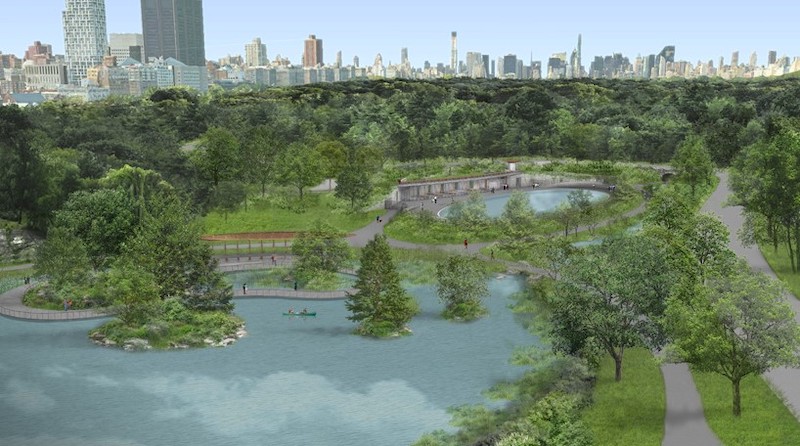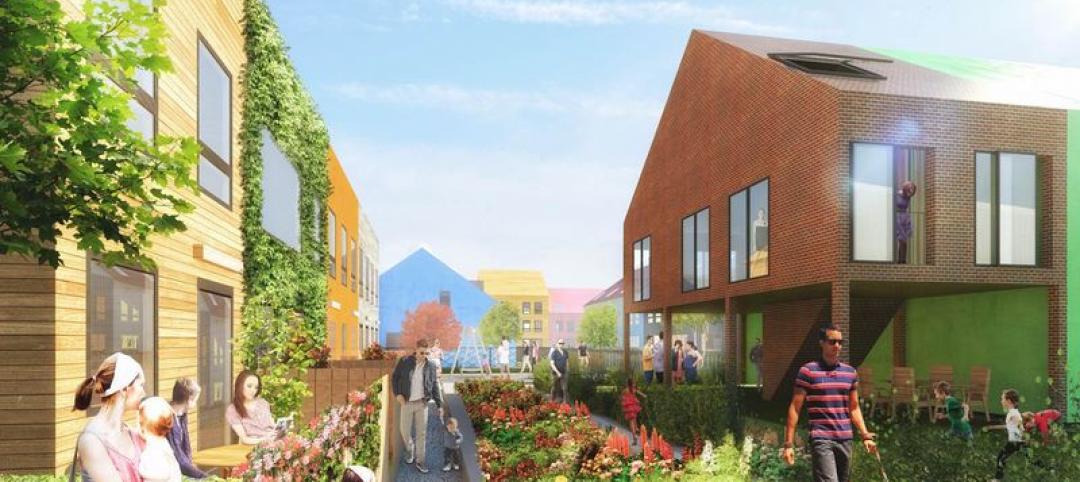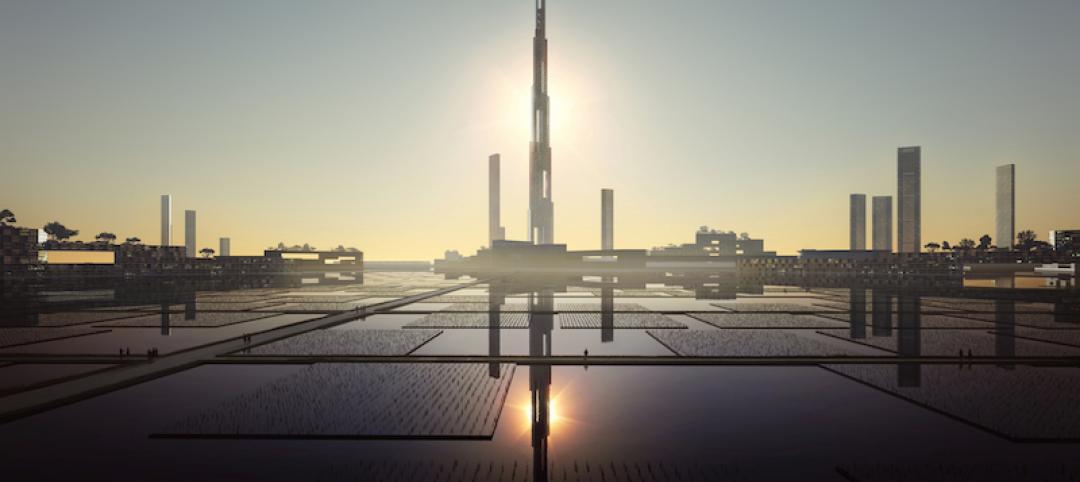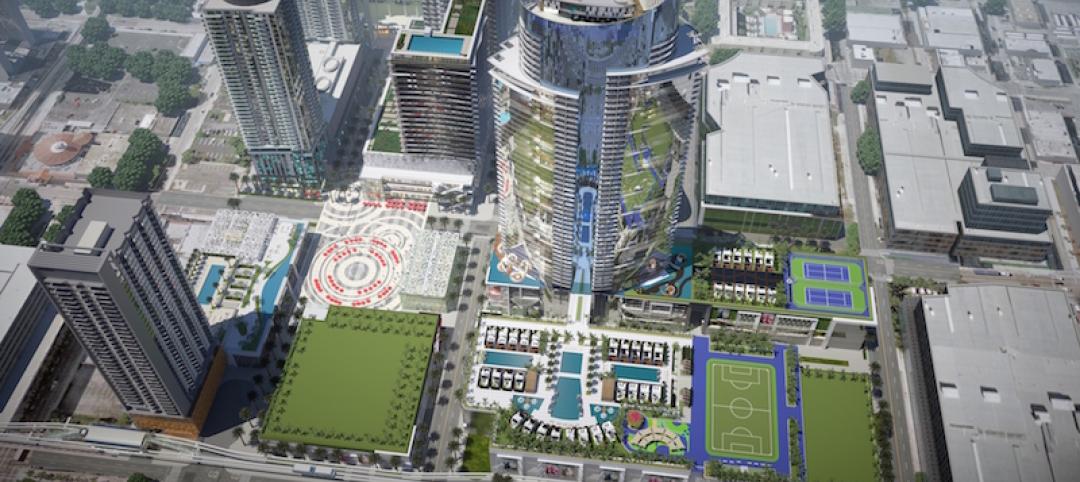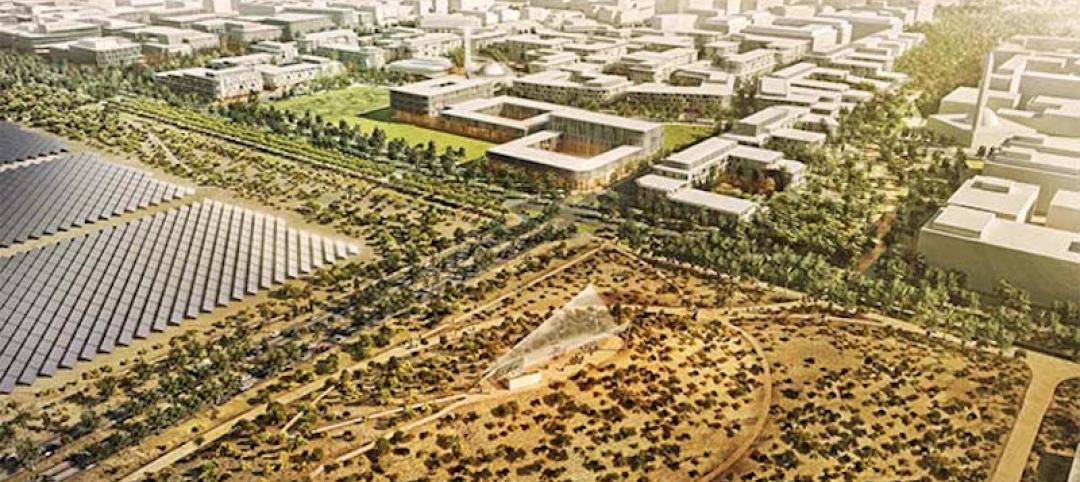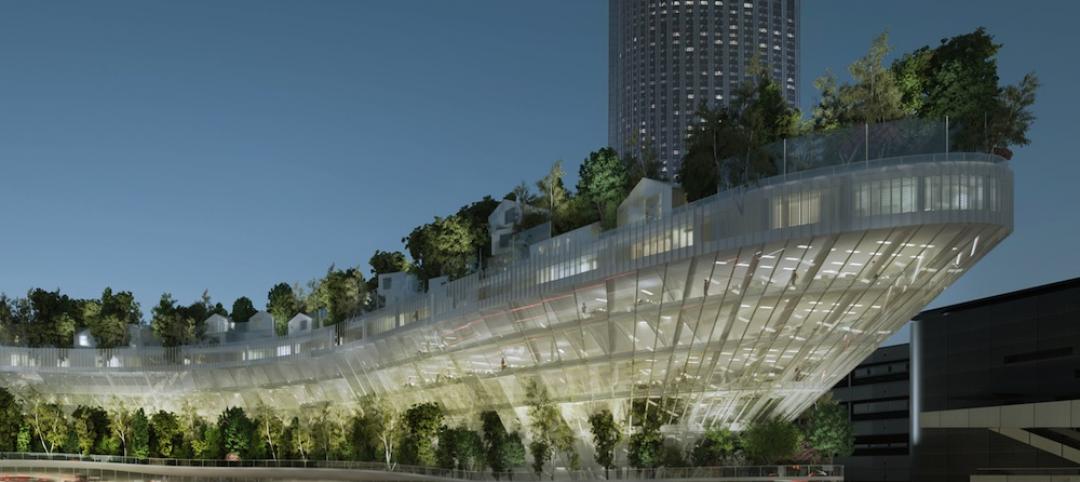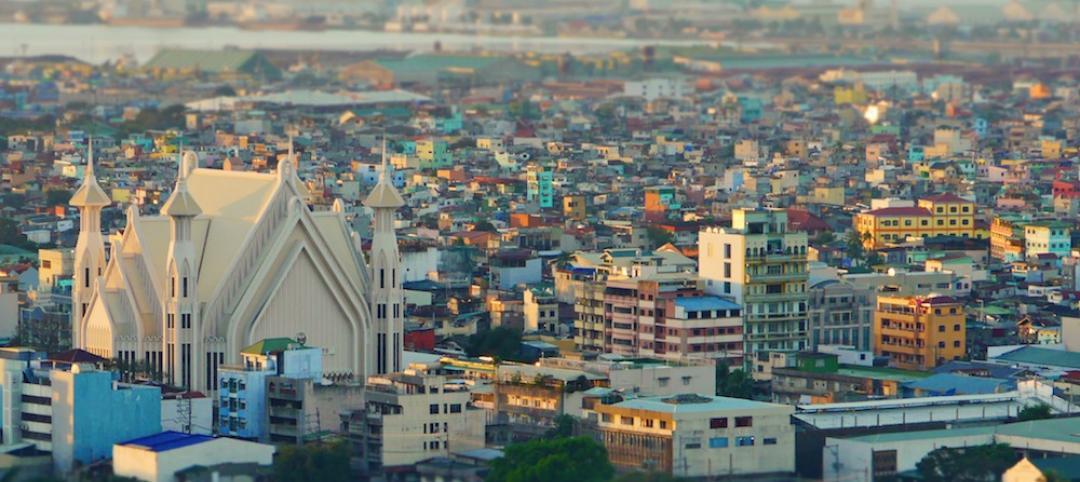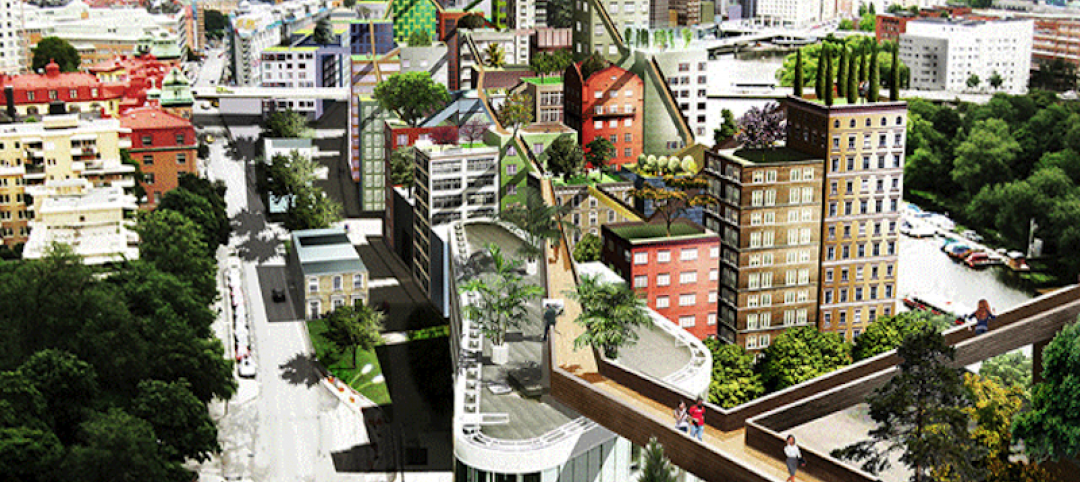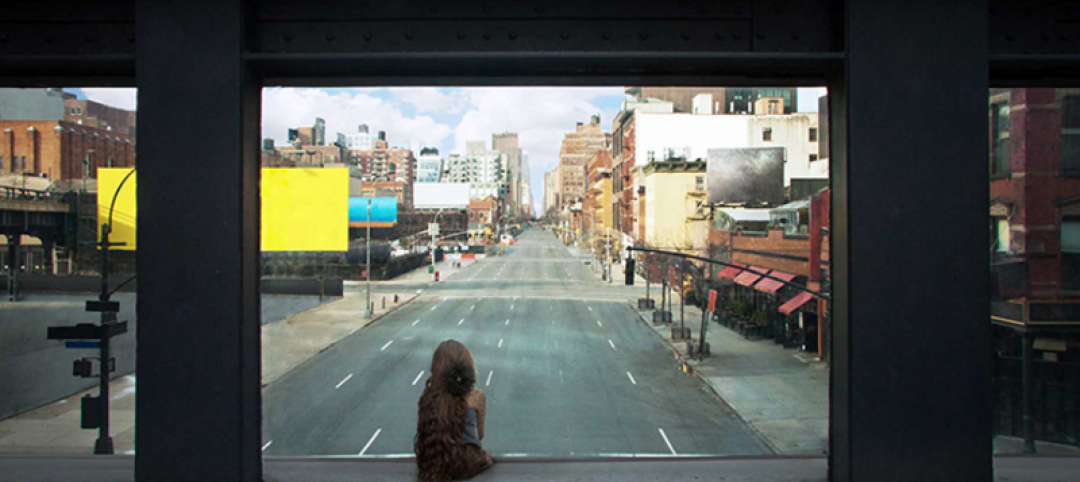The Central Park Conservancy has recently released details about the renovation of the Lasker Rink and Pool, the capstone project of the Conservancy’s 40-year campaign to restore Central Park. The project will restore the area’s ecosystem while creating a new pool and rink facility at the Harlem Meer.
The new facility will be integrated into the landscape by being built into the eastern side of the site with a green roof overlooking the area. It will be more open and accessible to visitors and, for the first time, the facility will support programming, access to restrooms, and amenities year-round.
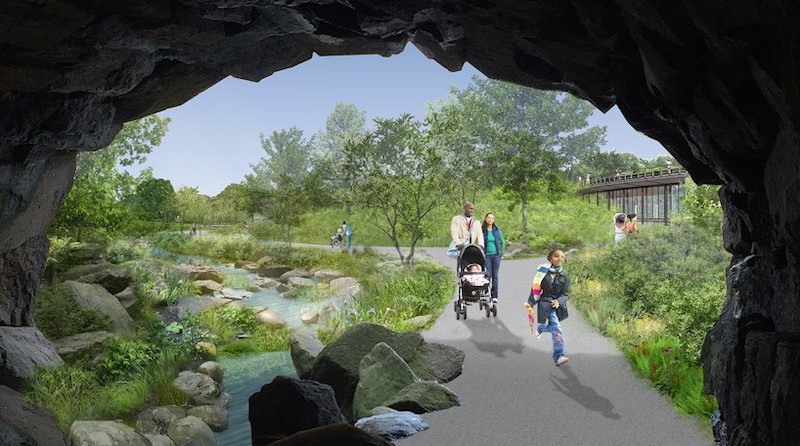
A new pool and outdoor splash pad will be built and a seasonal ice rink for skating and hockey will be installed. A boardwalk, accessed via an open-air pavilion on the shoreline, that travels through a series of small islands and a freshwater marsh will convert to a skating ribbon in winter.
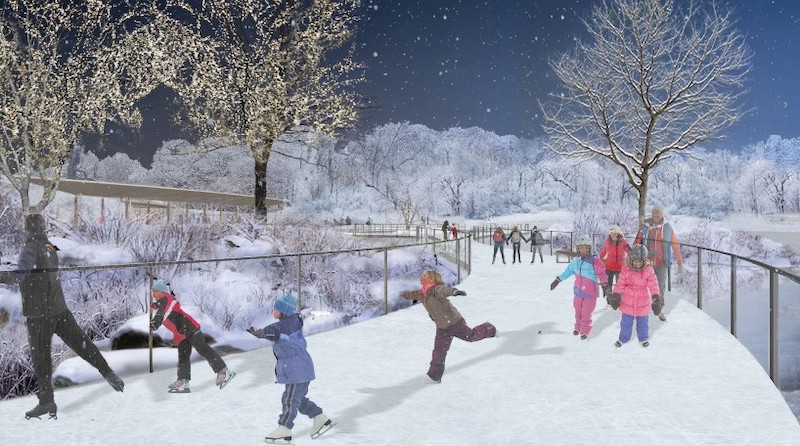
The existing Lasker Rink and Pool has acted as a physical and visual barrier to the north end for more than 60 years as it severed the Ravine landscape and Lock watercourse from the Harlem Meer. The new design provides unhindered access across to the north end of the Park by reconnecting the watercourse that runs through the Ravine so it flows freely into the Harlem Meer and by re-establishing the pedestrian path that once ran alongside it.
See Also: KPF-designed CITIC tower is Beijing’s tallest
The project, slated to begin in spring of 2021, has a budget of $150 million, which includes a $40 million maintenance and capital repair fund. The City of New York has allocated $50 million to the project. The conservancy is committed to raising the remaining $100 million and overseeing the design and construction. The project is slated for completion in 2024.
Related Stories
Urban Planning | May 4, 2016
Brookings report details how different industries innovate
In the new report, “How Firms Learn: Industry Specific Strategies for Urban Economies,” Brookings' Scott Andes examines how manufacturing and software services firms develop new products, processes, and ideas.
Urban Planning | Apr 19, 2016
MVRDV wants to turn a former US Army barracks in Germany into a model for the future of suburban living
Blending traditional families with young couples and the newly retired, MVRDV hopes to transform traditional suburbs into diverse communities of shared experiences
High-rise Construction | Mar 10, 2016
Bigger, taller, wider: London’s skyline is about to have a major growth spurt
More than 100 tall buildings have been added to the plans for the capital city since this time last year, and the overall number of tall buildings planned for London is now over 400.
High-rise Construction | Feb 25, 2016
Kohn Pedersen Fox wants to build a mile-high tower in Tokyo
The tower would be the centerpiece of Next Tokyo, a mini city in Tokyo Bay adapted to climate change and rising tides.
Mixed-Use | Feb 18, 2016
New renderings unveiled for Miami Worldcenter master plan
The ‘High Street’ retail promenade and plaza is one of the largest private master-planned projects in the U.S. and is set to break ground in early March.
Green | Feb 18, 2016
Best laid plans: Masdar City’s dreams of being the first net-zero city may have disappeared
The $22 billion experiment, to this point, has produced less than stellar results.
Urban Planning | Feb 9, 2016
Winners named in 'reinventing Paris' competition
Architects submitted projects that redeveloped key parts of the city and incorporated green space features.
Urban Planning | Feb 2, 2016
Report identifies 600 cities that will drive economic growth through 2025
Of them, 440 are in emerging economies in China, South Asia, and Southeast Asia.
Urban Planning | Jan 21, 2016
Anders Berensson Architects re-imagines Stockholm as a city of skywalks
The Swedish firm’s "Klarastaden" plan connects the city via clear skyways that weave in and around the city’s buildings.
Urban Planning | Jan 19, 2016
Cities are booming, but do they have what it takes to sustain growth?
While cities are creating new jobs and attracting new residents, there are warning signs that suggest this current urban boom lacks the necessary sustainability that comes with focusing on the macro issues of community, affordibility, and displacement, writes Gensler’s Peter Weingarten.


